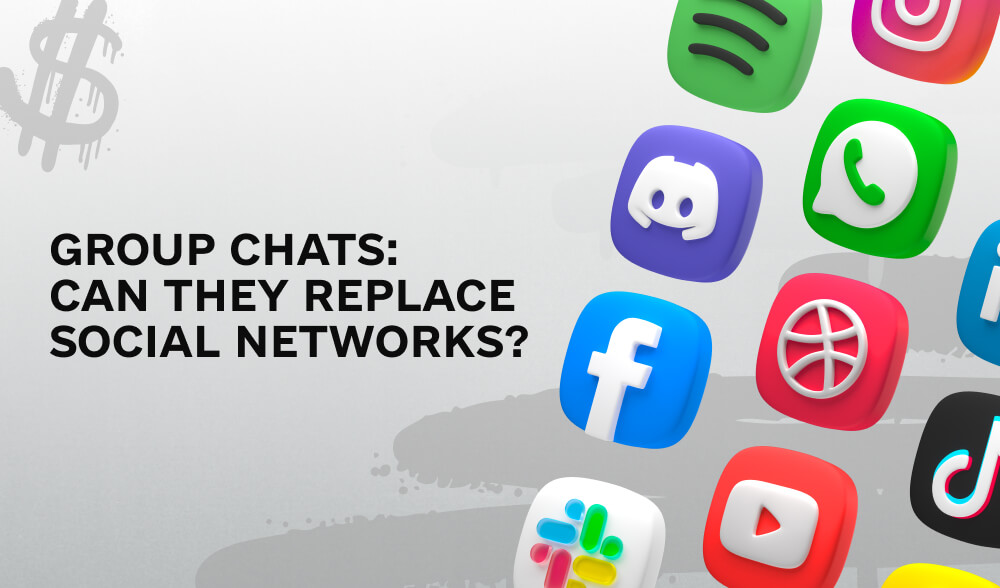Don't miss interesting news

Over the past decade, social media has changed the way people interact with each other online. However, the 2020 pandemic has fostered the development of new forms of communication, among which group chats have become a serious alternative to traditional social platforms. Discord, WhatsApp, Signal and other platforms have opened up new opportunities for private and less formal communication. These changes reflect a trend toward the growing importance of privacy and intimacy in the digital environment.
Group chats have become a space for discussion without constant pressure from algorithms. According to Business Insider, platforms like Discord have become an alternative to social networks, as they avoid algorithm-distorted news and create space for more honest and organic communication. Josh Kramer, one of the Discord users, notes that these chats have become a place where it is more important to find mutual understanding and support rather than “win” an argument.
One of the main advantages of group chats is the absence of a toxic atmosphere that is often found on public platforms. In traditional social media, users often seek approval for their views through likes or comments, and compete for the attention of others. Group chats tend to have more room for sincere discussions and mutual support. They are not focused on the popularity or status of participants, but rather on maintaining closer ties with people you can trust.
Discord, in particular, allows you to create thematic channels, which allows each participant to focus on the topics that interest them and avoid message overload. Users can join chats based on their interests: from movies and music to technology and scientific discussions, making the platform convenient for organized communication within specific topics.
Group chats have long gone beyond simple personal communication tools. They have become an important element of our digital environment. According to a study published in 2024, the average user in the UK is a member of 83 different group chats. This shows that chats have become an integral part of life, providing direct access to news and information without having to interact with social media algorithms that often change the order or meaning of messages.
WhatsApp, for example, offers a new channel format for media, allowing them to publish news in a direct and easy-to-understand format, again giving more control over information to users rather than social media algorithms.
Despite its many advantages, group chats also have their challenges. One of the main issues is the moderation of large groups. In large chats, it can be difficult to control discussions, and it’s not always easy to ensure a healthy atmosphere. In small groups where all participants know each other, ethical issues often arise: is it okay to keep people in chats after a breakup or if people have different views on certain topics? How often can you send memes or joke about serious topics? Lack of clear rules can lead to conflicts or inappropriate situations.
Despite some challenges, group chats have great potential for further development. According to Josh Kramer, social networks continue to search for the perfect formula for human interaction. However, in his opinion, the best atmosphere for communication and support is still present in private chats. Group chats provide more opportunities to create a favorable atmosphere for interaction, where “it is less important to be right and more important to help each other.”
We are on the verge of important changes in social media, where the focus is gradually shifting from large public platforms to more personal and local spaces for communication. In this environment, chats are becoming a new way to organize communication in the digital environment, where real connections and support between people are important, rather than algorithms and popularity. This changes traditional perceptions of social networks and creates new opportunities for the development of digital communication.
Group chats have become an important element of modern digital communication, gradually taking some of the attention away from traditional social networks. They offer users more space for organized communication without the pressure of algorithms and the search for approval. Although these chats have their challenges, particularly in terms of moderation and ethics, their potential for development is enormous. The absence of algorithmic influences and the ability to create thematic channels avoid information overload and promote deeper and more authentic interactions. In the future, group chats may become the basis of a new era of digital communications, with an emphasis on personalization and mutual support, where public platforms are gradually fading into the background.